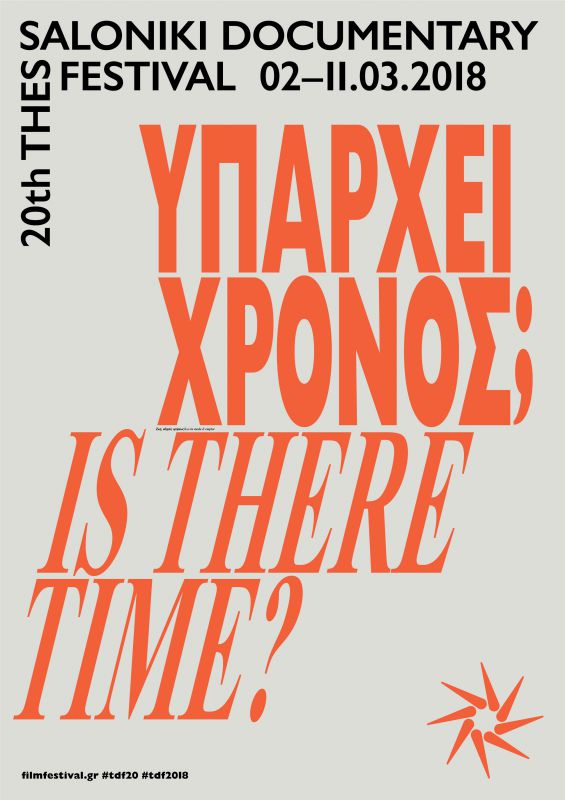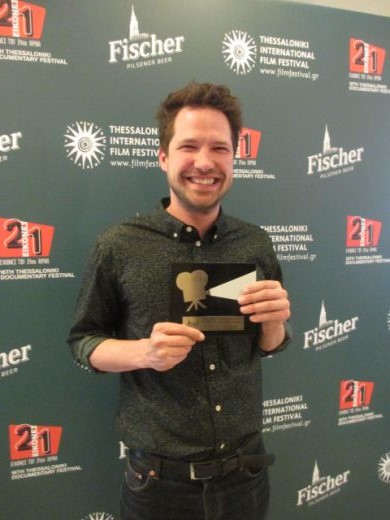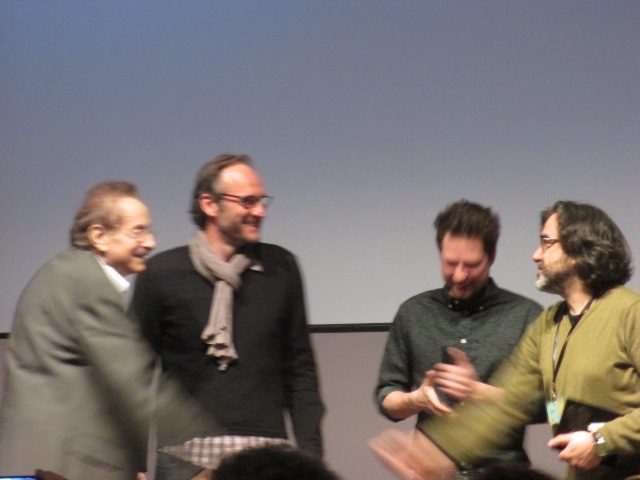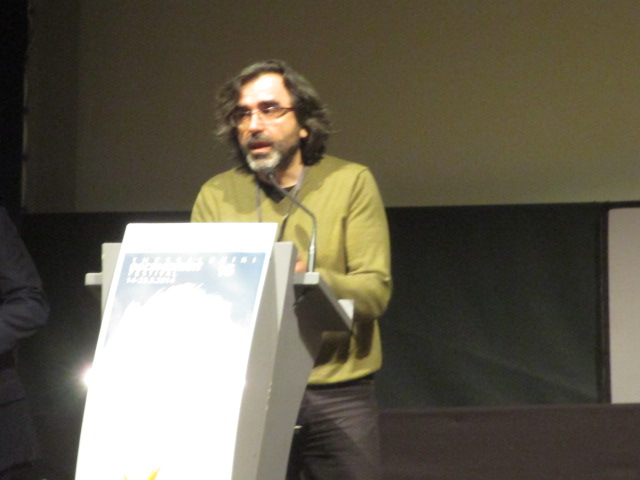|
|
||
|
Pro Tools
FILMFESTIVALS | 24/7 world wide coverageWelcome ! Enjoy the best of both worlds: Film & Festival News, exploring the best of the film festivals community. Launched in 1995, relentlessly connecting films to festivals, documenting and promoting festivals worldwide. Working on an upgrade soon. For collaboration, editorial contributions, or publicity, please send us an email here. User login |
On the Edge of the World (2013). Interview with Claus DrexelAh, beautiful Paris! City of lights, city of love, city of des Beaux-Arts and grand history...city of great poverty and a rising homeless population. Meet Jeni, Wenceslas, Christine, Pascal and many others who live on the streets all year long in Paris during freezing winters, hot summers and wet shoulder seasons. While they struggle to subsist under the bridges, in alleyways and in the metros in plain sight, they endure a near invisible existence. In his visually stunning and touching documentary- 'ON THE EDGE OF THE WORLD' (2013)- director Claus Drexel films the homeless of Paris to look at them up close and personal and hear what they have to say. -Vanessa McMahon
I interviewed Claus during the 16th annual Thessaloniki Film Festival and here is what he had to say:
ME: When did you decide to make a film about the homeless of Paris? How long did it take? CLAUS: I wanted to make this film for a long time, but never really decided to move on it. My idea was to give these people, that we see everywhere but never hear, the possibility to talk to us. Then one day, I pitched the idea to my producer friend Florent Lacaze. He loved the project and urged me to do the film as soon as possible. So we set up our team (1 cinematographer, 1 sound engineer and myself), made a few camera, lens and microphone tests and started right away. The shoot lasted more or less one year. ME: How did you find your characters? Was it hard to get your cast to decide to be filmed? CLAUS: The first two months we walked through Paris and talked with many homeless people. Maybe one hundred. Then I decided to focus on the dozen that are in the film, as I was deeply moved by their incredible loneliness. I first expected that most of them would not accept to appear in a film. But I was totally surprised by how warmly we were welcomed. I then understood that our society always thinks about material solutions for these people, but what they need most, his human relationships and consideration. ME: Would you say that Paris is one of the worst places in the world to be homeless? Why? CLAUS: It certainly is the most striking, because of the incredible splendor of the city. On the other hand, as it is a big city, there are many humanitarian associations out there. You don’t starve in a city like Paris. ME: The film is shot beautifully. Can you talk about the aesthetics of the shoot? CLAUS: I wanted to emphasize the incredible contrast between the situation of these people and the splendor of Paris. As in a painting, I also believe that there is a deep resonance between the inner beauty of these people and the magnificent backdrop. ME: Most people think that France has a good social system (compared to poorer countries), so why are there so many homeless people? CLAUS: Maybe the French social system has reached its limits too, regarding the ongoing crisis. On the other hand, it is important to understand that many of these people have much deeper problems than just economical ones. Even if you’d provide them with a home, they’d come back on the streets sooner or later. It’s hard to understand, but we must accept that and have consideration for them, even if they remain a total mystery to us. ME: Do you think that being homeless is it at times a conscious decision for people or a matter of poverty? Or both? CLAUS: Living on the streets is so tough, that no one would go for it conscientiously. Even if some people say so, I believe it’s one last expression of pride: if you say that you chose this situation, it sounds as if you still have a control over your life. But I think that they just can’t do otherwise. When people tell me that they can’t understand why the homeless just don’t make the effort to find a job and move on, I answer them asking why – if themselves, they’d like to have more money – they just don’t make the effort to run as fast as Usain Bolt, who is obviously very rich. We all have our limitations and deserve equal recognition as human beings, regardless of what we are able to do and what not. ME: What do you think about the rise of poverty happening in the world today, and with that the rise in homelessness? CLAUS: I sincerely believe that money is the worst invention of mankind. Its main purpose is to enable some to have much more than they need, inevitably taking it away from others, who consequently have less than they need. And it gets worse and worse. If money didn’t exist, no one would pile up tons and tons of potatoes in his garden that he wouldn’t be able to eat, leaving the others starving. And we should not forget that some of the greatest works of art, like the incredible cave-paintings in Lascaux and elsewhere, prove us that homo sapiens were able to achieve extraordinary tasks before money existed. ME: Do you think this material digital age has created a greater divide between those who have and those have not? And do you think that those having a hard time making money are those who are having a difficult time changing as rapidly with modern times? CLAUS: I personally don’t think that what the digital age offers is a great enrichment. I have much more consideration for a little drawing made by the hand of Man, than for a telephone with a fruit printed on the backside. But what frightens me, is the ability of the industry to impose this change onto us: if you don’t follow, you drown. In India, for example, welfare money is now wired on people’s cell phones. If you don’t own one, you get no money. So, yes, it definitely creates a greater divide. ME: Will you continue to make documentaries? If so, what will you work on next? CLAUS: Coming more from the fiction world, I loved making a documentary. In fact, what I loved most, was meeting different people. I certainly want to make another documentary one day, but I’ll have to find the right subject first. In the foreseeable future, I only work on fiction projects. ME: How did it feel to be an award winner at TIFF? How was the reaction to your film? CLAUS: Receiving the international critics award was a fantastic surprise. I’m very grateful to the jury members, who told me very nice things about the film in private, after the ceremony. On the other hand, a competition is always like a lottery. You’re lucky, if most of the jury members are responsive to the kind of films you make. It doesn’t mean that the awarded film is “better” than the others. View trailer here: https://www.youtube.com/watch?v=fpX3veILyy8 07.04.2014 | Thessaloniki's blog Cat. : On the Edge of the World (2013). Interview with Claus Drexel Interviews
|
LinksThe Bulletin Board > The Bulletin Board Blog Following News Interview with IFTA Chairman (AFM)
Interview with Cannes Marche du Film Director
Filmfestivals.com dailies live coverage from > Live from India
Useful links for the indies: > Big files transfer
+ SUBSCRIBE to the weekly Newsletter Deals+ Special offers and discounts from filmfestivals.com Selected fun offers
> Bonus Casino
User imagesAbout Thessaloniki Mcmahon Vanessa Mcmahon Vanessa Vanessa McMahon Covered the 13th and 14th, and 16th edition. Through its tributes, it focuses both on discovering filmmakers with a unique cinematic point of view, and on the internationally recognized for their contribution to documentary. Contributions from Buno Chatelin http://tdf.filmfestival.gr/default.aspx?lang=en-US&loc=6&page=760 View my profile Send me a message My festivalThe EditorUser contributions |



















 Claus Drexel
Claus Drexel









